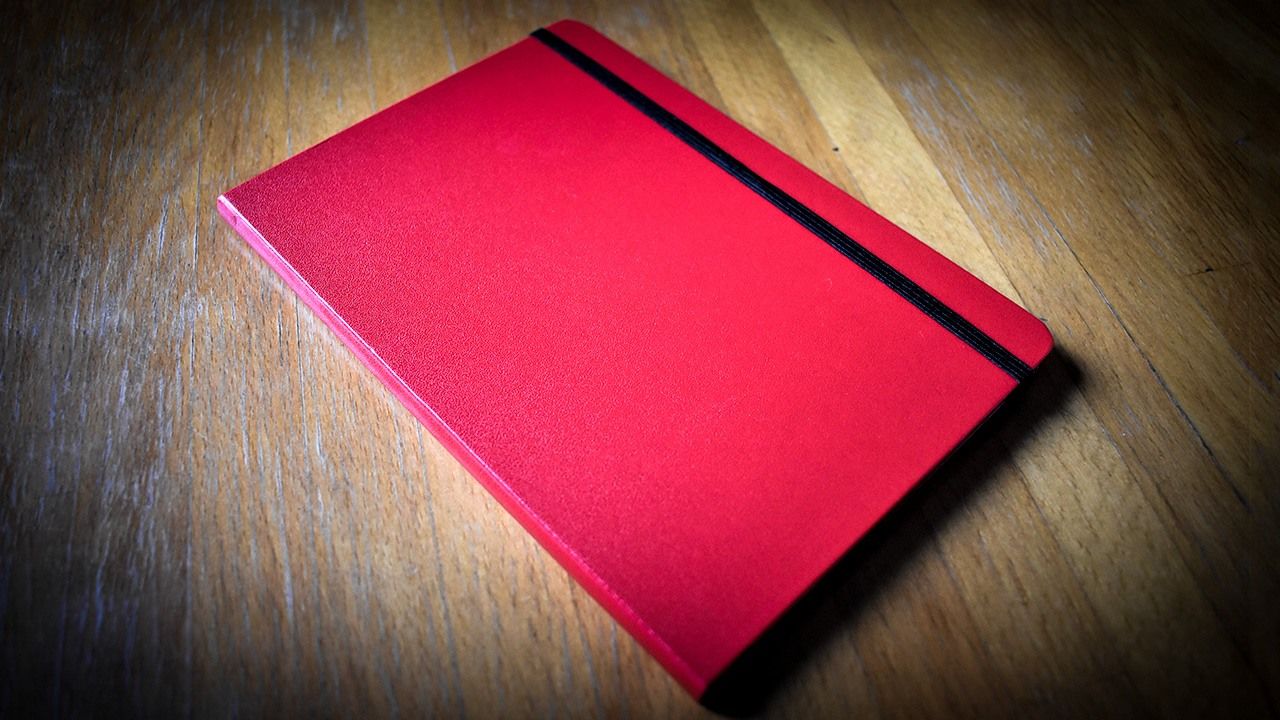
A Dying Daughter’s Journal Brings Hope to Her Family
Family Health Lifestyle- English
- 日本語
- 简体字
- 繁體字
- Français
- Español
- العربية
- Русский
A Letter Published Just in Time
She was an enthusiastic foodie who loved cooking and always had her nose in a book. She made vice-captain of her junior high school volleyball team, and turned an objective gaze on life around her. In her younger days, Kanazawa Rina was a precocious child known to tag along at adult pub nights.
On February 14, 2017, Rina had a letter published in a reader’s contribution column of a national daily, the Asahi Shimbun.
“I’ve got pediatric leukemia. I’ve had two transplants and recurrences since I was 15,” she begins. “A year ago, my doctor told me I should be ready for my condition to take a turn for the worse at any time, but still, I’m happy. When I get to eat dinner at home with my family or with my boyfriend, take a bath, and sleep in my own bed, I feel deeply happy.”
In the letter, Rina goes on to explain about a notebook. She intended for it to be a record of what she wanted to happen after she was gone, but her mother, Maki, was deeply troubled about the negativity associated with these writings, based as they were on the assumption of her own death.
One day, Maki suggested that the family use a notebook to record their own thoughts, so that they would have no regrets later. “I saw this red notebook with a black band—our Tomorrow Book—lying on the table,” writes Rina. “I was so happy.”
A Book of Dreams
Maki explains the origins of the Tomorrow Book. “I got the idea from the practice of recording your thoughts and wishes in ‘ending notes,’ as they are called in Japan, as part of preparing for your own death But the premise of our book was that Rina would live on, not that it would be a preparation for death. It was for us to write down all the things that came into our head to make sure our dreams came true.
The stylish red notebook, bought at a ¥100 discount store, lay in the kitchen so the family could note down things they wanted to eat, places they wanted to go, or things they wanted to do. Each was to be crossed out when it was completed. The book also became a message board for the family to communicate things they might have found difficult to say to each other directly.
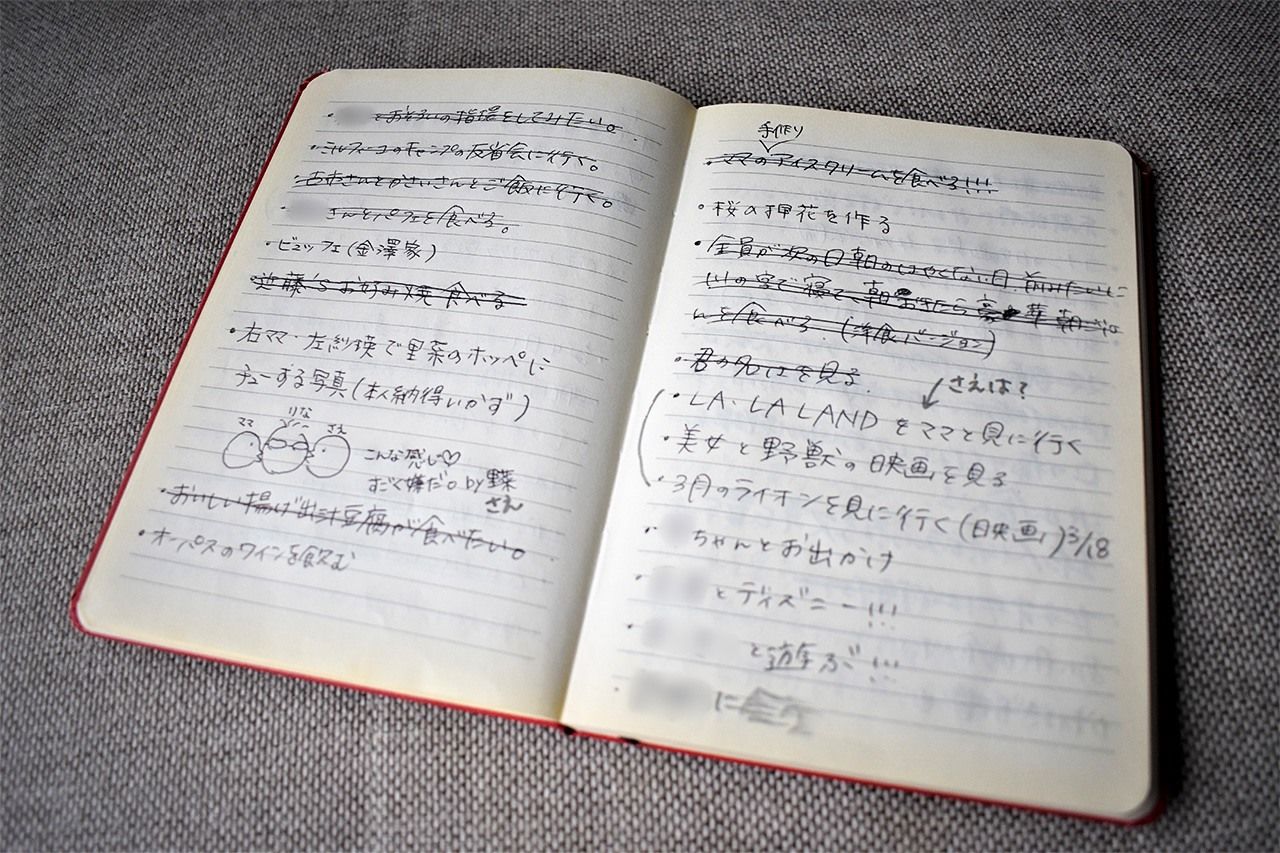
Pages of the family’s Tomorrow Book.
The food-loving Rina’s contributions were often about food, or her boyfriend. Items she had crossed off the list included “roast beef and soufflé cheesecake,” “making a chocolate cake for Valentine’s Day,” and “sleeping side-by-side on a day we can all sleep in, and having a breakfast feast when we get up.” Having a letter published in the newspaper was another. Starting at the back of the notebook, meanwhile, Rina wrote down things she wanted her family to know after she had gone.
“The day I created the Tomorrow Book was the day I gave up,” confessed Maki. I had always rejected the possibility of her death and thought I wouldn’t let her die. But the day I started this notebook, the fact of allowing us to write negative things meant that I had to accept the fact of Rina’s death.”
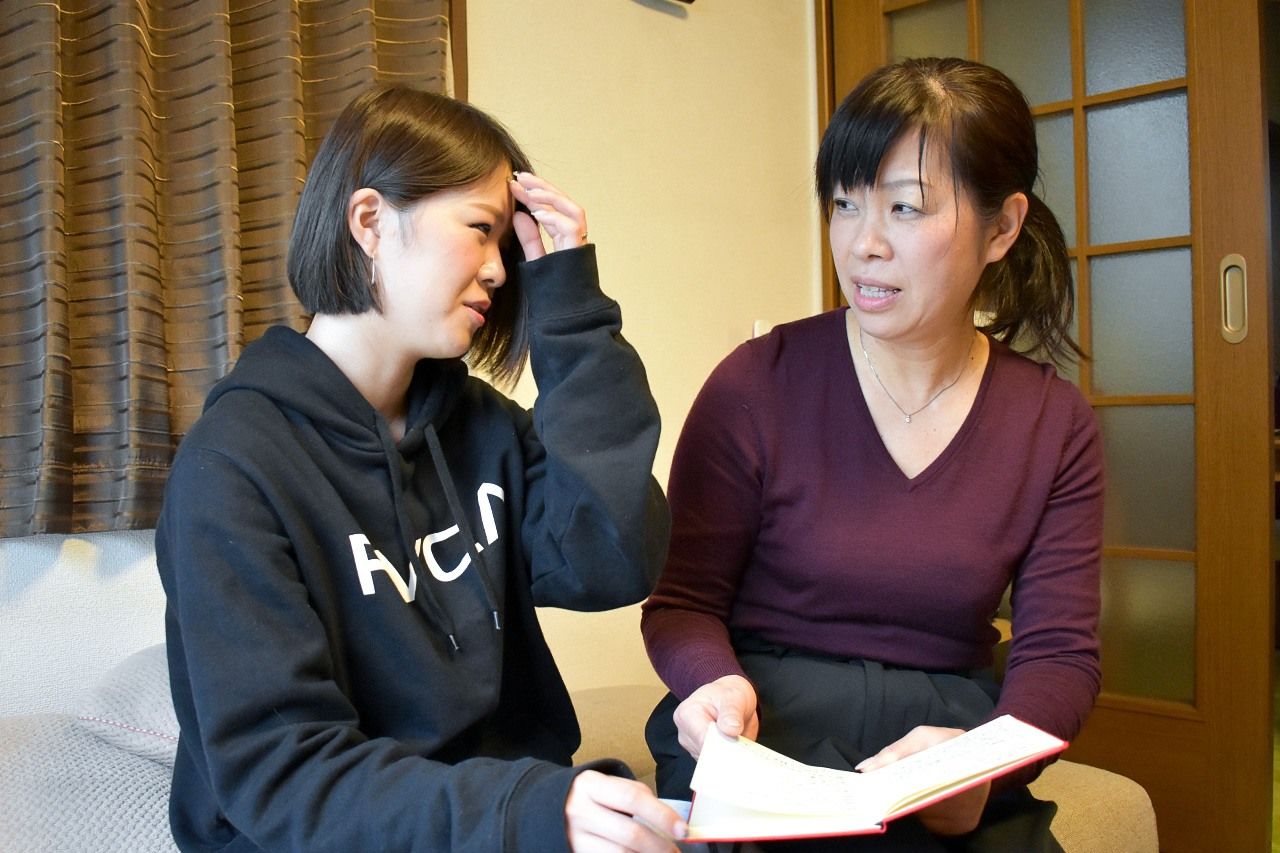
Maki and Rina’s younger sister Sae recall treasured memories, Tomorrow Book in hand.
She Was our Pride and Joy
Inoue Fumiko, the chairperson of Millefeuille Childhood Cancer Frontiers, an NPO supporting pediatric cancer families, helped Rina through her journey from the time she first became ill at age 15. Just months before she died, they went for sushi at the Tsukiji fish market and a parfait at a well-known fruit and dessert parlor. “Seventy to eighty per cent of pediatric leukemia cases are cured now, but Rina had a particular, nontypeable form.”
Three months after Rina’s letter ran in the paper, in May 2017, Maki had her own letter published in the same column. “My oldest daughter, Rina, who bravely fought leukemia, left us on April 26. I am the mother of the 20-year-old who wrote in to this column in February. Communicating with so many people in this way gave my daughter strength to live. From when she became ill at 15 until she died at 20, she lived her life at many times the speed of the average young woman.”
The mother’s column goes on: “For Rina, battling her illness, for me, her anxious mother, and for her younger sister, at a loss what to do, the Tomorrow Book was a godsend that helped unite us. Although I started it for Rina, it was really for us, the family left behind. I am so proud of my daughter’s great strength.”
The family fought the disease with a firm belief that Rina would recover and be cured. Sae, two years younger than Rina, was her first bone marrow donor at the age of 13. When the topic of a transplant came up, Sae was keen to donate, saying she was likely to be the best match for her sister. Maki, however, remained on edge for the entire two-week hospital stay. In the end, the transplant was a success.
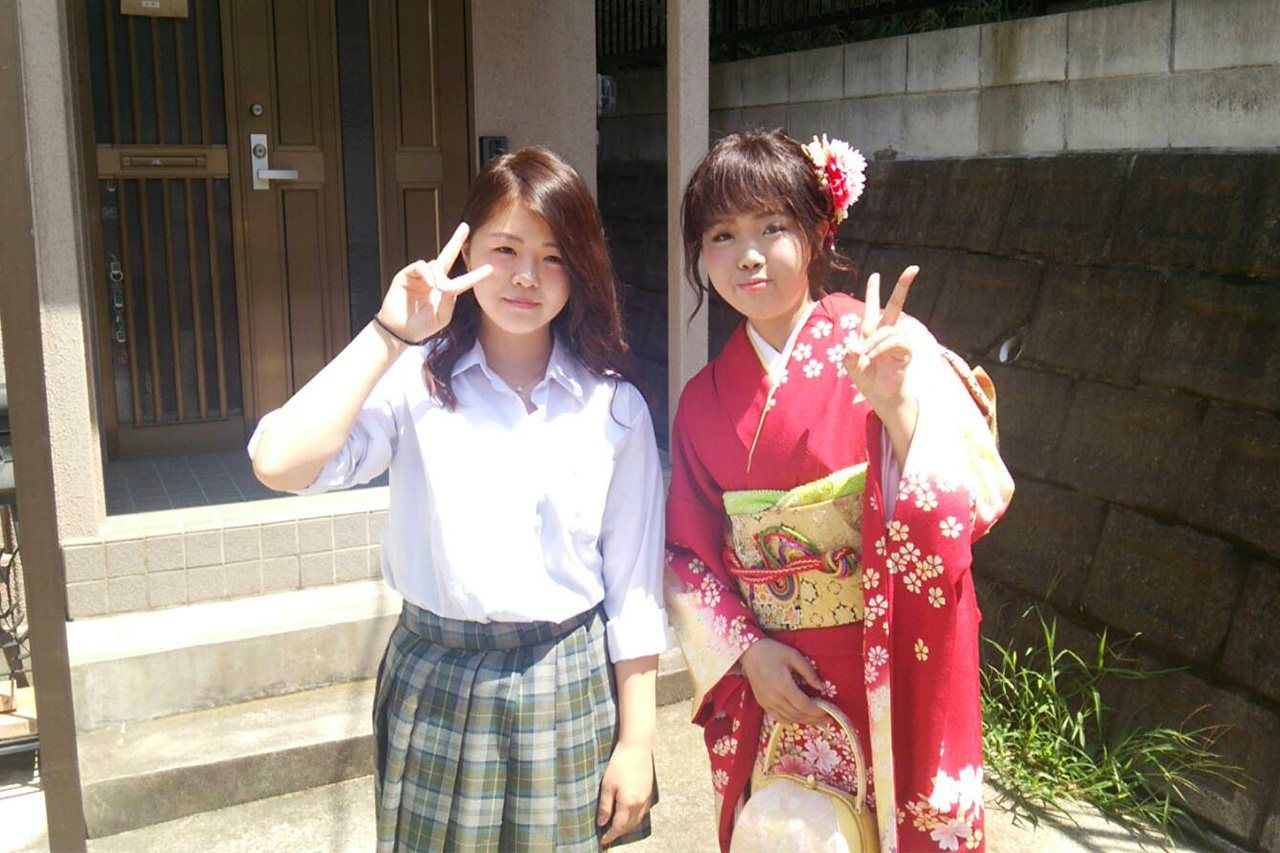
The sisters celebrating Rina’s twentieth birthday on Coming of Age Day. Sae copied her big sister’s style. (2016)
On the Volleyball Team
After being discharged from the hospital, Rina managed to make it to her junior high school graduation ceremony, but she was refused entry to numerous high schools on the basis that there was “no precedent” for admitting a student with such a grave illness to contend with. Ultimately, one private school was understanding and flexible enough to accept her. During her time there, she revived its three-member volleyball club and spent a month studying abroad in England.
Rina’s parents divorced when she was in third grade. While her mother worked as manager of a gas station, Rina would cook and help keep the all-female household running. After she had her second transplant and graduated from high school, Rina got into a nutritionist training school. She studied while working part-time at a family diner and a cram school.
Maki says her daughter was always on top of things. “The only option in her mind was to live and get better. She was never uncertain or afraid. Even when her health was getting steadily worse, she was always thinking of ways to make life more comfortable. She was incredibly well prepared. She never complained, even when her body was failing and she was losing her sight. We would have a good cry together, and then she would look positively to the future again.” Concerned about her family after she was gone, Rina also wrote messages to them in notebooks and letters other than the Tomorrow Book they shared.
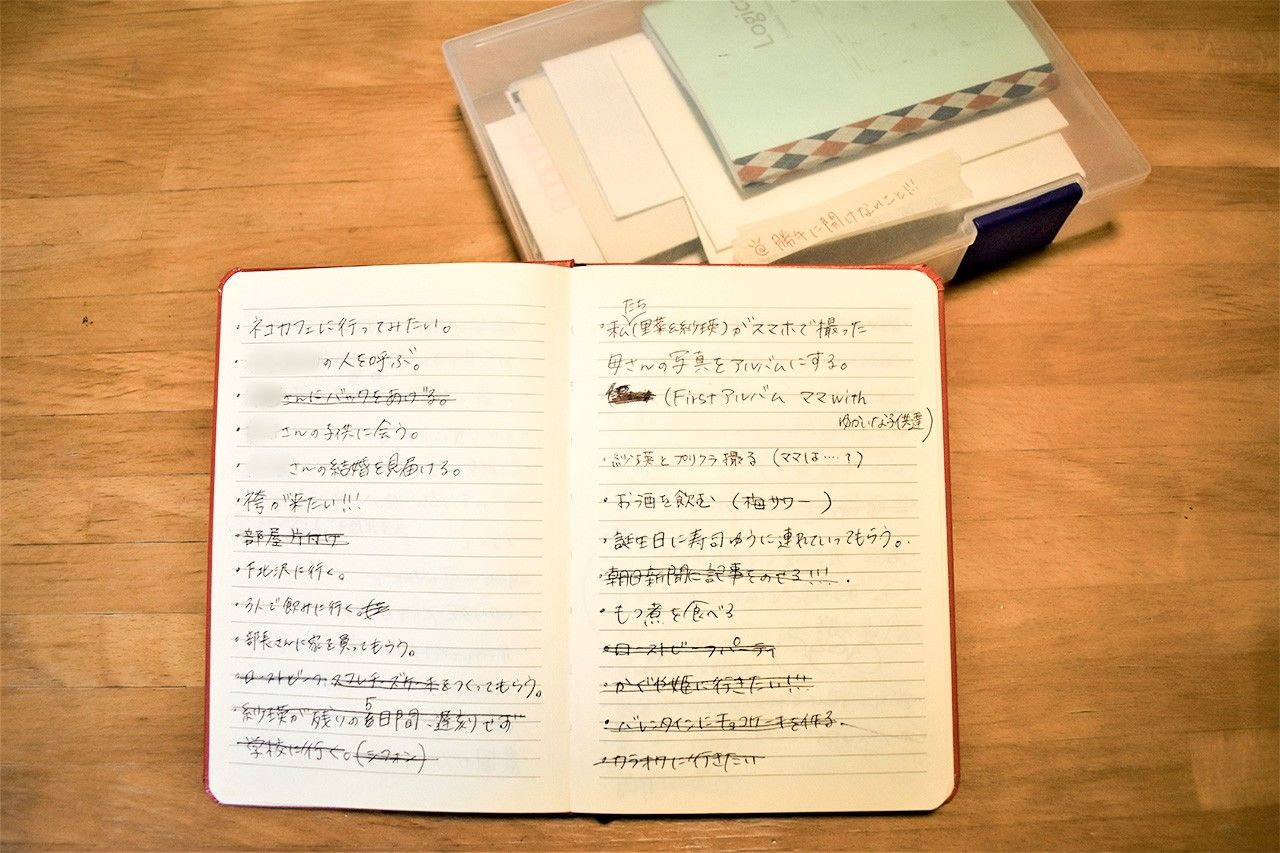
The Tomorrow Book and the box from Rina’s hospital room with the warning, “Open at your peril!”
A Masked Message
Left only with Rina’s writings, her mother and sister have nothing but praise for how well she presented herself in them. “What a great a storywriter she was,” say both Maki and Sae. “Her words really pack a punch.”
“The thing that got me the most,” says Maki, “was the small book in which Rina had recorded her ever-increasing medications and treatments.” The book was in a clear box emblazoned with a warning: “Open at your peril!” A piece of masking tape was stuck down the middle of the very last page. Following Rina’s instructions, Maki did not remove it until Rina’s funeral—to find that it concealed a message from Rina. Then the mother read it to the people who were close to her daughter.
“Thanks for giving me so much happiness and love.”
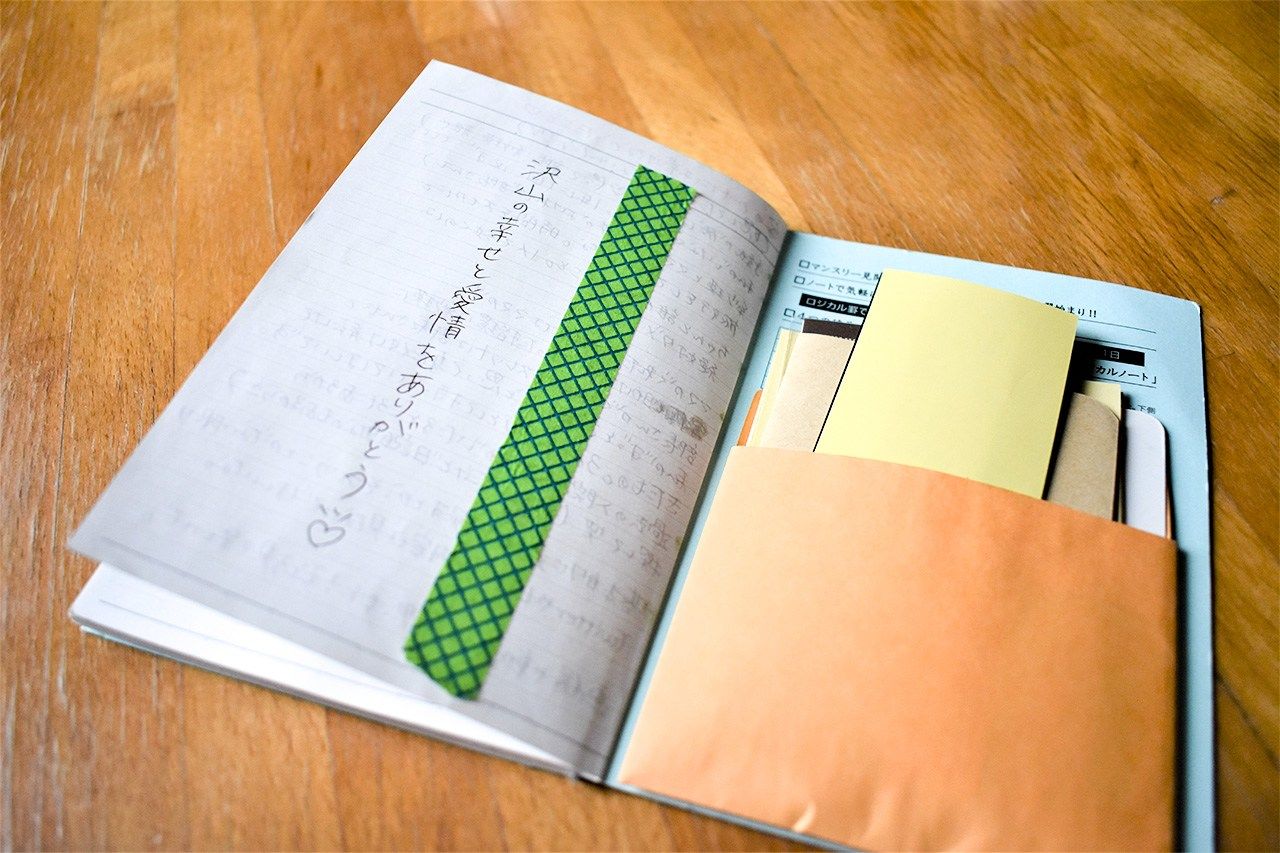
Rina’s medical journal with the message concealed under masking tape said “Thanks for giving me so much happiness and love.”
Two years have now passed since Rina’s death. Sae, now 20 years old, recently cut off 30 centimeters of her hair to donate it to a charity creating wigs for young cancer patients in need. “I would never have dreamed of doing that if it hadn’t been for Rina,” she says. “I would have been wasting things that can be useful to people. That’s a gift from my sister.”
The Tomorrow Book still lies on the family’s kitchen table. One item that remains unchecked is “making pressed cherry blossoms.” Sae gently reminds her mother that they absolutely must press some of the flowers this spring.
(Originally published in Japanese on April 23, 2019. Photos by Doi Emi of Nippon.com. Banner photo: The ¥100 store notebook that became the Tomorrow Book.)